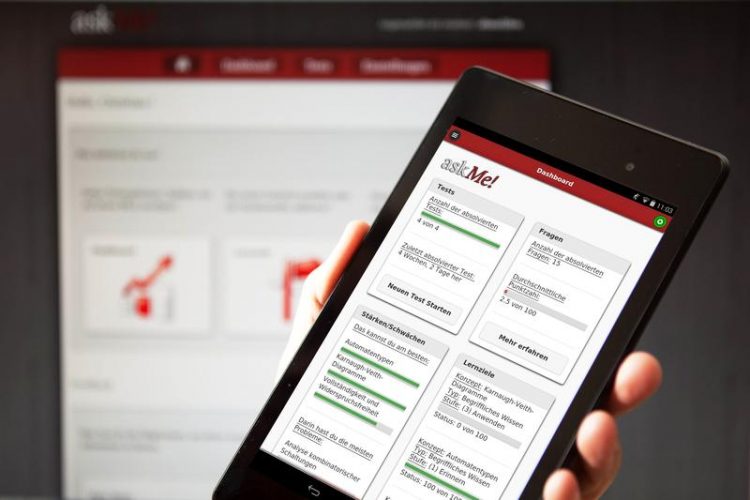Applying Knowledge, Not Just Memorizing Facts

The personalized system for computer based assessment of learning results can be used for the preparation of exams as well as for the evaluation of professional skills of employees and job applicants Fraunhofer IDMT
”askMe!” allows students to apply the theoretical knowledge they have acquired to practical situations, and to transfer this knowledge to other areas of application. The system integrates multimedia content, such as interactive animations and simulations, demanding the student to actively and exploratively deal with the learning content.
Students are offered realistic scenarios, in which they can alter settings and parameters. And they receive immediate feedback whether or not these modifications have resulted in the desired effect.
To Christian Saul, developer of ”askMe!”, personalized and individualized content is key to successful learning and sustainable learning success: ”I consider it to be very important that exams and tests can be adapted to a student’s individual capabilities and requirements. Each student has a different knowledge base and different learning preferences. Working with ‘customized’ tests and content increases the student’s moti-vation and prevents them from being overchallenged or underchallenged.”
“Students using ”askMe!” before taking their exams performed significantly better than students who did not use the system. ”askMe!” students on average were almost one mark better. The failure rate of ”askMe!” students was only 5 percent, while the failure rate of students who did not use the system was 15 percent”, says Christian Saul.
The system developer considers the market potential of ”askMe!” to be high, as the system can be used for other application areas as well. ”We see the system not just being used by students who need to prepare for their exams in schools and universities, but also by companies who want to evaluate the professional skills of their employees and of job applicants.
The test results can be statistically and graphically evaluated, allowing the comparison of a number of candidates. ”askMe!” thereby provides an objective basis for deciding in favor of or against an applicant.”
By means of an easy to use authoring environment,”askMe!” allows fast and simple creation of questions and tests – also by several authors who work collaboratively on the development of such from different locations. The system offers more than twenty basic question types – from multiple-choice questions to complex graphical interactive tasks.
Make sure you stop by the Fraunhofer booth at the CeBIT (booth E40, hall 9) in order to test your knowledge and learning skills.
Media Contact
More Information:
http://www.idmt.fraunhofer.deAll latest news from the category: CeBIT 2014
Newest articles

Innovative 3D printed scaffolds offer new hope for bone healing
Researchers at the Institute for Bioengineering of Catalonia have developed novel 3D printed PLA-CaP scaffolds that promote blood vessel formation, ensuring better healing and regeneration of bone tissue. Bone is…

The surprising role of gut infection in Alzheimer’s disease
ASU- and Banner Alzheimer’s Institute-led study implicates link between a common virus and the disease, which travels from the gut to the brain and may be a target for antiviral…

Molecular gardening: New enzymes discovered for protein modification pruning
How deubiquitinases USP53 and USP54 cleave long polyubiquitin chains and how the former is linked to liver disease in children. Deubiquitinases (DUBs) are enzymes used by cells to trim protein…

